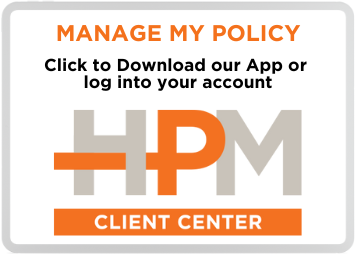As residents in New Hampshire and across the country feel the financial pain of rising costs, many are searching for ways to save money. This has increased the number of people considering switching home insurance companies in hopes of obtaining lower premiums.
Though this may be a good way to save, there are some things to consider before making the move, as what seems a "better deal" may not be in the end.

Why Changing Homeowners Insurance to Save Money Doesn’t Always Work
On-Site Inspections Can Flag Issues
Because the insurance industry is facing challenges, (see How Inflation is Impacting NH Homeowner's Insurance), many carriers are becoming more selective on which homes they are willing to insure. Even if you believe your home is in good condition, the insurance company may disagree should they order an on-site inspection and find areas of concern.
As agents, we have seen a significant increase in the number of inspections ordered as many home insurance companies want to ensure the coverage on the home is adequate and there are no visible areas of concern that could lead to a claim.
Common areas of concern for carriers include:
- dry rot
- older roof or roof with missing or loose shingles
- loose or missing railings or steps
- missing siding or peeling paint
- storage of flammable products
- pets, trampoline, pools
- overhanging tree limbs or dead trees on the property
As technology has made it easier for carriers to inspect using third-party vendors, drones, or satellite images, we have seen more insureds impacted by inspections than in the past. As you won’t know that an inspection is required until after initiating the process of switching insurers, it is suggested that you assume an inspection will be done and feel your home will pass without issue.
If an insurer completes an inspection, it might flag a problem that your current insurance company didn't. This could cause higher premiums, cancellation, or repair expenses you didn't plan on immediately.
What Happens if My Home Inspection Does Not Go Well?
When you purchase home insurance, the insurance company has the right to inspect the home at any time, whether you are with a new company or have had the same company for years. The difference is that when you switch carriers, the new company is more likely to inspect, given you don't have a history with them.
If the existing carrier you have had for years completes a home inspection and there are concerns, you will likely have until the renewal date to fix the issues. This is because NH consumer protection laws prevent a company from issuing an immediate cancellation.
If you are new to an insurance company in NH, the company can issue a cancellation notice within the first 90 days if an underwriting issue is discovered. This is why it is more likely that an insurance company will assign an inspector soon after a new policy is issued. If beyond 90 from policy issuance, the company is typically required to keep insuring the property until the renewal date.
Can My New Insurance Premium Increase Unexpectedly?
Though agents hate it when this happens, it can occur. Perhaps your effective date occurs just after a rate increase went into effect, or you forgot about a claim filed in the past or the square footage of your home is larger than reality.
Insurance rates are filed with the NH Insurance Department, so they are not random. That said, if facts change or rise to the surface from when the policy was quoted and issued, you may pay more than you expected.
If there is a material change, like a poor condition of the home or roof, unfenced pool, or undisclosed business or pets, the carrier may or may not charge more but instead, issue a cancellation notice, which can lead to more problems.
 What if I Received a Cancellation Notice from my Home Insurance Company Due to an Inspection?
What if I Received a Cancellation Notice from my Home Insurance Company Due to an Inspection?
The first thing to do is review the inspection carefully. Though not common, we have seen an inspector provide a report on the wrong house.
If you disagree with the inspection, immediately contact your agent to explain why. Your agent may be able to provide insight into what can appease the insurance company.
If you agree with the inspection but have a plan of action, contact your agent immediately so they can communicate your plans to the company.
A typical example could be that your roof needs to be replaced. You know this, so contacted a roofer to start the job next month. If you provide the signed contract proving this, along with photos of the new roof once replaced, that may appease the company and withdraw the cancellation notice.
It is not recommended that you do nothing if you disagree with your insurance company's inspection report and decide not to comply with the recommendations. This can cause a domino effect of coverage issues, most likely resulting in much higher premiums.
Differences in Replacement Cost Valuations
Many homes are insured for replacement cost, which is a fairly standard feature among home insurance policies.
The premiums charged for replacement cost coverage are impacted by how much it would cost to rebuild the home. It’s an estimated amount often determined when the policy went into effect and likely increased slightly each year with an inflation guard endorsement.
An issue is that not all insurance companies use the same method to estimate a home's replacement cost so carriers can have different estimates using the same facts.
If a new insurer values the replacement cost of your house at a higher amount than your current insurance company, you can expect higher rates.
(If your home isn’t insured at replacement cost, contact an insurance agent who knows homeowner's policies to discuss getting better coverage for the house.)
How to Manage Your Current Homeowners Insurance to Keep Premiums Low
If you have good homeowners insurance in place, it may be best to retain your current policy and keep the premiums as low as possible. Some ways to do this are:
- Pay your premiums on time so the insurer doesn't cancel your policy. Insurance companies don’t have to renew or continue coverage if you don’t pay.
- Avoid filing a claim against your home insurance policy unless it's necessary to do so. A small claim could raise your premiums in future years. Any increase due to a claim will likely be assessed regardless of whether you switch insurers.
- You can also see if there are additional discounts that you aren’t yet taking advantage of by speaking with your agent. A significant discount is often available when you bundle your home and auto with the same carrier or install an alarm system. Improving your credit score can also qualify you for lower premiums.
There are other potential discounts to explore. A knowledgeable agency, like HPM Insurance, can help.
Review Your Current Homeowners Policy
If you have questions about your current homeowner's insurance policy, contact the independent insurance agents at HPM Insurance. We represent many insurance companies and can advise you on whether you should remain with your current company or perhaps consider moving to a different one.


